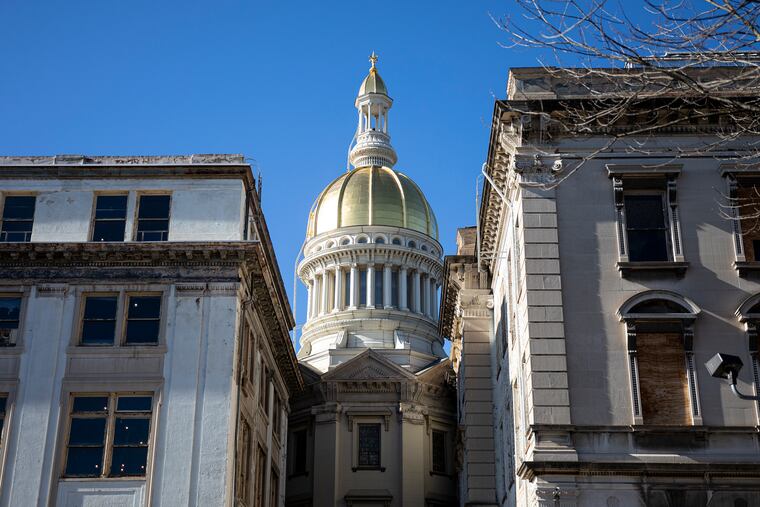N.J. Legislature to vote Wednesday on a record $50.6 billion budget
The budget boosts spending 9% over last year and sets aside $2 billion for property-tax payers and renters.

TRENTON — New Jersey’s Democratic-led Legislature has teed up a vote Wednesday on a record $50.6 billion budget that boosts spending 9% over last year, sets aside $2 billion for property-tax payers and renters, and carries a $6 billion surplus into the new fiscal year.
The spending blueprint emerged from closed-door negotiations late Monday and sped through the Assembly and Senate committees soon after, with Republicans issuing what has become an annual refrain that there was little transparency and short time to review the plan.
“Nobody voting on it has had a chance to read the thing,” Republican Sen. Declan O'Scanlon said. “It’s done already without much public input — certainly without any input from this side of the aisle.”
Senate Budget Committee Chair Paul Sarlo defended the process, saying he expected many of the line items to be derided as “different slang terms.”
“They are investments,” he said. “I think we have a comprehensive bill here that will invest in the future of New Jersey that provides the largest tax credit, tax cut for property taxpayers in the history of New Jersey.”
Among the new proposals is a massive property tax relief program that will offer credits to property owners and rebates to renters, a first for the state.
The $2 billion program, and the bigger budget overall, comes thanks to state coffers flush with tax returns and amounts to lowering the roughly $9,300 average property tax bill for many to $7,800, a level not seen in more than a decade, according to Democratic Gov. Phil Murphy.
Under the budget, 870,000 families that make up to $150,000 would get “direct relief” of $1,500; those earning from $150,000 to $250,000 will get $1,000 in relief, and for the first time ever, according to Murphy, renters will also get assistance. Those making up to $150,000 will get $450 in assistance.
Murphy estimated the agreement would affect two million households, more than five million of the state’s over nine million residents.
New Jersey’s annual average property tax rate of $9,300 is regularly among the highest in the country.
Murphy and legislative Democrats have turned more to affordability since his narrow win over Republican Jack Ciattarelli in November after touting progressive policies he delivered in his first four years.
Republicans, who are in the minority, say that the tax givebacks aren't enough and that more of the state's rosy tax receipts should be returned to taxpayers.
The spending plan also sets aside $6.3 billion in surplus, which Sarlo said was the biggest in state history. The significance stems from the importance credit-rating agencies place on how much states keep in reserve when determining how credit-worthy they are. Typically, the agencies look for 10% in reserves, and New Jersey’s budget sets nearly 12%, Sarlo said.
The budget funds New Jersey's government but also sets aside billions of dollars that go back to school districts and local governments. It also finances public worker pensions and transit, among other programs.
Republicans criticized Democrats for being left out of the process, with GOP Sen. Michael Testa lamenting that his colleagues' ideas weren't included.
“This is not being facetious. If I felt you guys were going to join us in a vote, I would sit here all night into tomorrow morning,” Sarlo said. “I don’t think we’re going to change anybody’s mind.”